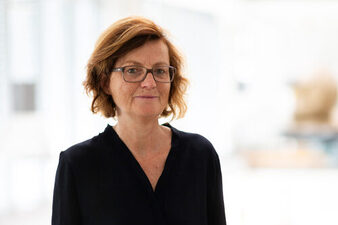The university professor and cooperation partner of the competition, Christian Kühn from the Institute of Building Theory at TU Wien, praised the diversity of the submissions. "I was particularly pleased with projects that approached the task not simply as a building design, but systemically. In some cases, the result does not look like healthcare architecture at all, but perhaps like a community center with a focus on urban gardening. Such approaches can easily be developed further in the direction of prevention. This creates new types and it is to be hoped that the future of healthcare architecture will be characterized by such typological innovations."
Norbert Trolf, Dean of the Faculty of Architecture and Spatial Planning and host of the evening, emphasized the importance of raising awareness of universities and students in the field of healthcare architecture. "When we were asked whether we would like to support Architects Collective in designing this award, we didn't hesitate for long, as the topic of healthcare architecture has been at the top of our agenda for some time, not so much in teaching but in research."
This is precisely where the Student Award for Healthcare Architecture comes in, continues Norbert Trolf. "It is intended to raise awareness of an area that will develop very dynamically in the coming decades as a result of demographic developments, advances in medicine, but also new forms of organization - just think of the current development of primary care centers, which could lead to new types of buildings in combination with other uses. We are delighted to be able to contribute to this development with our support for the Student Award for Healthcare Architecture."
Architecture and planning are not only concerned with aesthetic and functional tasks, but also with complex social issues globally. They can create a vessel or system that designs and enables new and better structures for a society in permanent change. The Architects Collective Student Award for Healthcare Architecture in cooperation with the Faculty of Architecture and Spatial Planning at TU Wien aims to bring together theory, research and practice in the field of planning for healthcare buildings - for an architecture that keeps an eye on the balance of interests and the most pressing issues of our time.
The prize invites young talents to deal with social challenges through the disciplines of architecture, spatial planning, urban planning and landscape architecture and to supplement this with other disciplines such as medicine, nursing or sociology. Students and young architects can discover healthcare architecture as an exciting field and understand it as an explosive socio-political topic.
"In view of the increasing ageing of Western societies and the rapidly growing need for care, it should be worked out how we as a society want to ensure the planning of humane, ethical, health-promoting and affordable living spaces for people in need of care in the future," says Andreas Frauscher from Architects Collective. The Student Award was specifically designed to encourage people to deal with social challenges and find interdisciplinary solutions.
The aim was to develop an architectural or planning concept for space or rooms for temporary or permanent use by people with care needs. Participants from all over the German-speaking world were invited to develop a solution that consciously thinks beyond traditional designs or system boundaries. "Students and graduates are invited to discover healthcare architecture as an exciting field and socio-politically explosive topic. Bold, innovative, unconventional and interdisciplinary designs are welcome and even expressly encouraged," emphasized Richard Klinger from Architects Collective in the call for entries.


